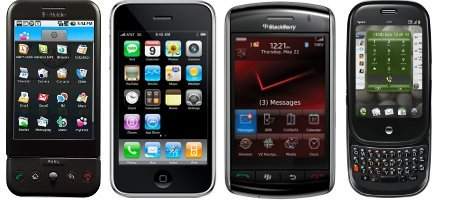Armonk, (NY) – IBM plans to invest $100 million over the next five years in a new program to improve mobile services.
IBM says it aims to create technology in its labs to bring new services to the millions of people who use their mobile devices for financial transactions, entertainment and shopping.
“Mobile devices are gradually becoming ubiquitous and helping us transcend many boundaries – geographical, economic and social,” says Dr. Guruduth Banavar, in charge of the mobile communications focus for IBM Research and director of IBM Research India. “With high penetration, simple user interface, and significant cost advantage for end users, mobile telephony holds the future of communication and exchange of information for the enterprise.”
The company says that mobile phones now outnumber traditional telephones and the opportunities for growth in mobility are enormous. According to IBM’s Institute for Business Value, the number of mobile users will grow by 191 percent from 2006 to 2011 to reach approximately one billion users.
An IBM pilot scheme forming part of IBM’s first-of-a-kind (FOAK) program, which used a technology called BlueStar to develop automated mobile devices and application management services for insurance claims processing. IBM’s FOAK program teams IBM scientists with clients to explore how emerging technologies can solve real world business problems.
The pilot enabled an insurance company significantly to reduce the amount of time required to process claims by using mobile technology to locate and dispatch the most appropriate and available claims adjusters for each case. The right agents were identified through a combination of GPS location technology, presence awareness capabilities and an analysis of all candidate agents’ calendar availability.

For the 83 percent of the world that does not have easy access to the Web via PCs, IBM is striving to help mobile phone users become more productive. In these locations, there is a dearth of skills, such as technological and language literacy; a lack of infrastructure, such as reliable electrical power; as well as limited availability of smartphones.
IBM Research established a pilot program in southern India that allows farmers, repairmen, small business owners and consumers, to post, retrieve or exchange data using cellphones. Content such as weather and ocean conditions, grain prices, advertisements, bus schedules, news, class schedules, product catalogues, health information and available services appointments, is created and updated by individuals and local government.
“Mobility and the associated analytics will change virtually every enterprise business process,” says Paul Bloom, chief technologist, IBM Telecom Research. “It will change the relationship between enterprises and their customers, their employees and their partners, enabling them to do business in more intelligent, efficient ways.”






